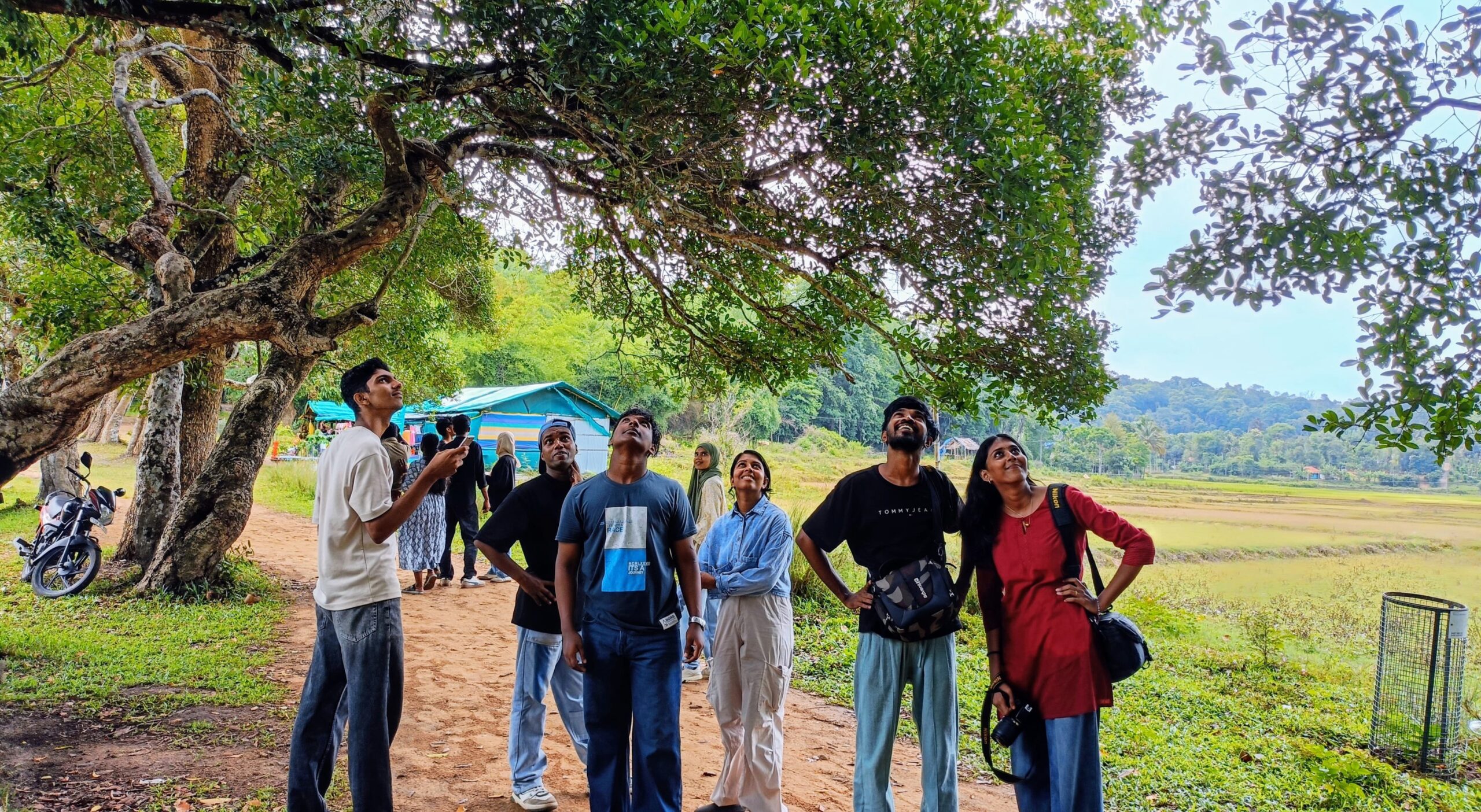
Roots and Routes: Reimagining Forests, Reclaiming Futures
The Roots and Routes camp inspired us with a deep yet simple realization: that we, along with indigenous people, animals, birds, and every living being, are all part of nature, not separate from it. We don’t stand above or outside it; we live within it, sharing the same space, the same rights, and the same responsibility. Every step through the forest, every story heard, and every sound felt reminded us of this truth. Sivakami shares her two-day experience in Kuruvadweep, Wayanad, Kerala.
Panthi is a collective that critically engages with local, national and global systems of oppression ranging from Hindutva fascism and patriarchy to colonialism and capitalism. It aims to amplify the voices of the marginalized and oppressed in pursuit of justice and equality.
The very name ‘Panthi’ encapsulates its purpose and vision. Its inspiration comes from the pages of history: “Panthibhojanam”, initiated by Sahodaran Ayyappan, which happened in Kerala in 1917. It was a revolutionary act in which people from various castes came together to share a meal at the same table, breaking deeply rooted and rigid social barriers and boundaries.
Panthi organized a two-day camp in collaboration with the Kerala Forest Department on May 17 and 18 at Kuruvadweep, Wayanad. The camp, titled ‘Root and Routes’ and themed ‘Youth Intervention for a Sustainable Future: Reimagining Forests’, was intended to reconnect young minds with nature and encourage them to rethink their role in protecting and preserving it. It was a thoughtful start, shaping the hands and hearts that will help shape a more sustainable and equitable world in the future.
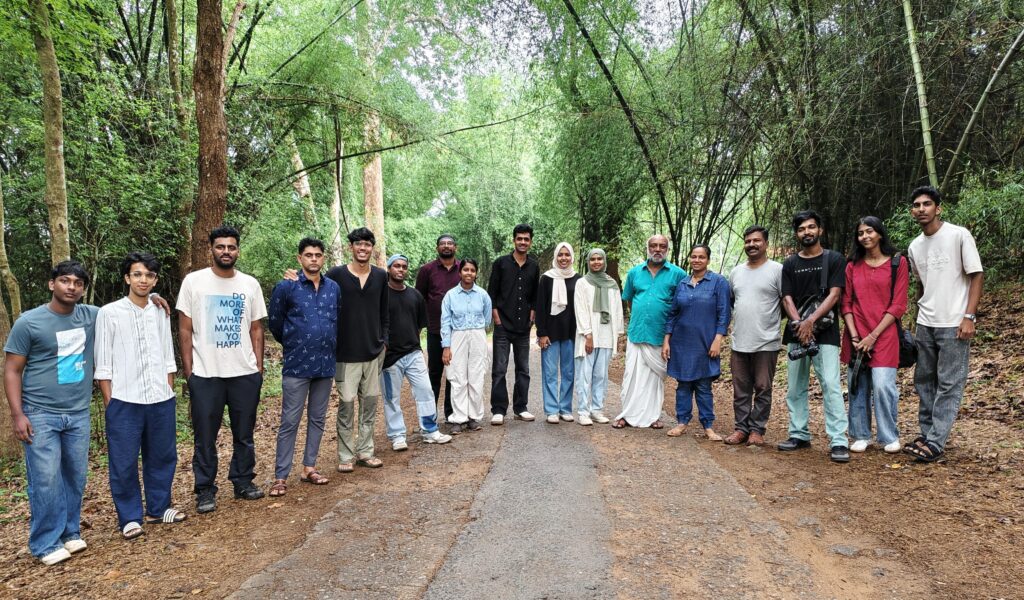
Nothing could have marked a more meaningful and insightful start than the first session handled by Wayanad’s very own tribal poet, storyteller, and social activist, Sukumaran Chaligatha.
Sukumaran Chaligatha, who writes in both Malayalam and Rawla (his tribal language), captures the very essence of indigenous life through his lively short stories and powerful poetry.In contrast to traditional literary forms, his writings defy established conventions of literature and adeptly convey the unfiltered reality of tribal life. The rhythm of the forest and the pulse of his people are artfully echoed in his verses, which frequently blend natural sounds, including even shrieks and silences.
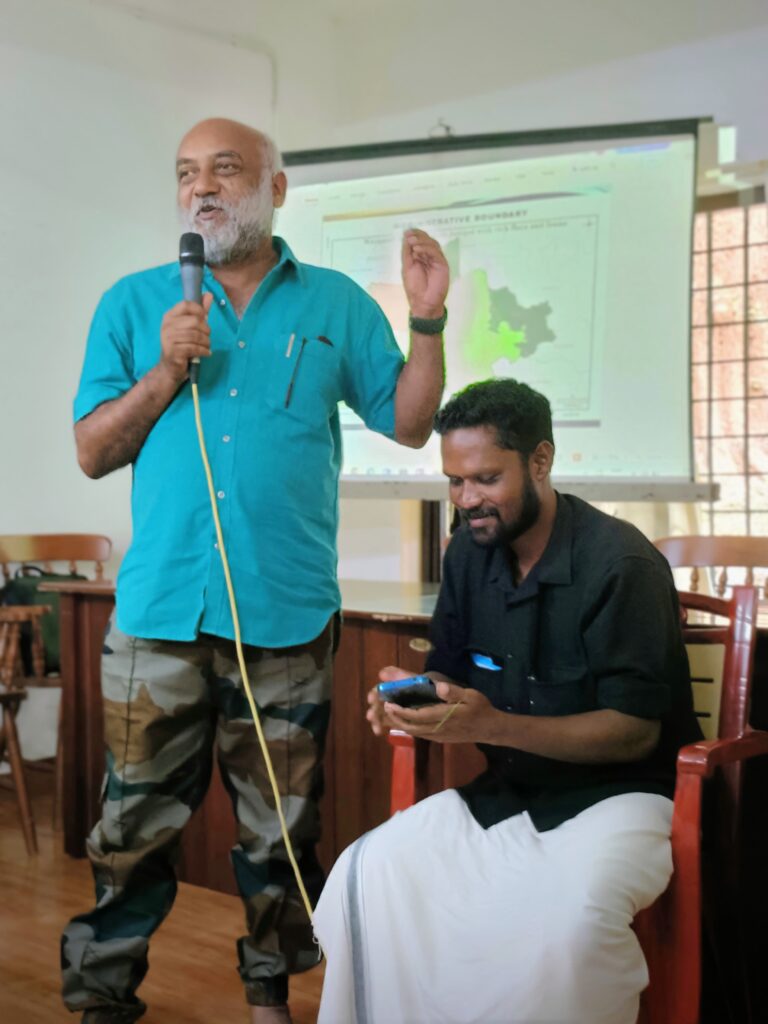
He shared heartfelt stories, thoughts, and experiences that reflect how his community lives intimately with nature; they see nature as a living, breathing companion, not as a resource to exploit. His words not only provided insights but also crafted a lived experience. He concluded with a strong reminder that protecting nature is respecting and honouring the people who have protected and nurtured it for generations.
This was followed by Sayooj Ravi, a biologist from the Kerala Forest Department, with an insightful and interactive session on forest conservation work in Wayanad. With great knowledge and enthusiasm, Sayooj explained various projects that are currently in progress in Wayanad to conserve its invaluable biodiversity. He discussed targeted species conservation and new strategies such as AI Fencing, Wildlife Hospice, and responsible Eco-Tourism.
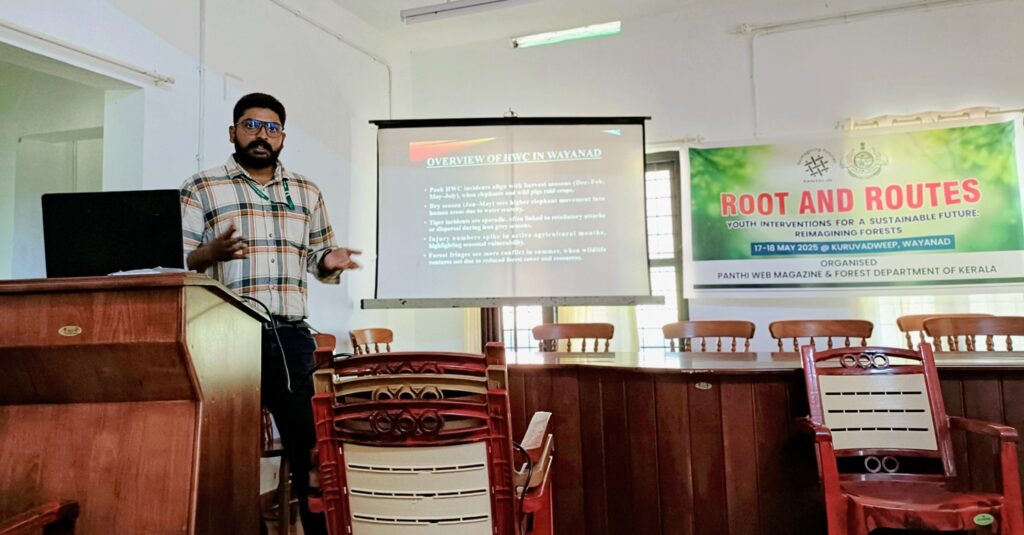
His address was not only informative about the science and strategy behind conservation but also motivated the audience to consider environmental conservation as a shared social and ongoing obligation.
The following session was led by Hari and Narayanan (Naru) from “Iruthi Collective . They played instruments such as the Parai and Djembe, which carry the sounds of Dalit and tribal lives. Parai, an ancient Tamil drum, has been traditionally made and played by the Paraiyar community for centuries as a symbol of defiance and cultural assertion.
The goblet-shaped drum of West Africa, the Djembe, serves a similar role for groups such as the Malinke and Bambara, with its music accompanying rituals and stories. Through the power of its rhythms, Hari and Naru created a space where sound became a medium for social and cultural conversation. They also spoke of Poykayil Appachan, a Dalit spiritual leader, poet, and social reformer, who employed music and poetry to challenge caste oppression and recover erased histories. By singing one of his songs, they celebrated his life and reminded everyone how powerful a voice, rhythm, and defiance could be.
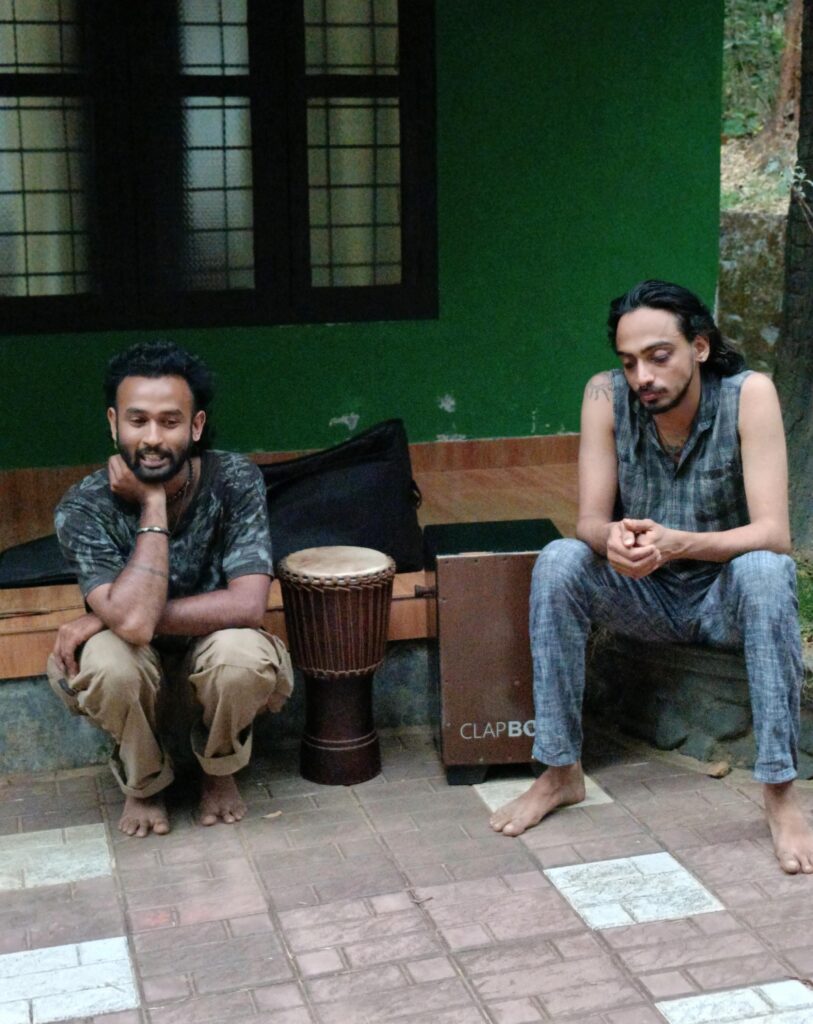
Day one ended with the screening of M.K. Ramdas’ Malayalam documentary “Nekal”. It showcases the life and legacy of Padma Shri Cheruvayal Raman, popularly known as the Guardian of Indigenous Paddy. He is a tribal farmer from Wayanad and has devoted his life to safeguarding native paddy seeds and the associated farming wisdom passed down through generations. “Nekal” captures his connection with the land, his relentless recording of weather, and his determination to keep 63 varieties of indigenous paddy. The documentary not only taught the participants about ecological agriculture but was also an emotional homage to a man who literally and figuratively cultivated these lands.
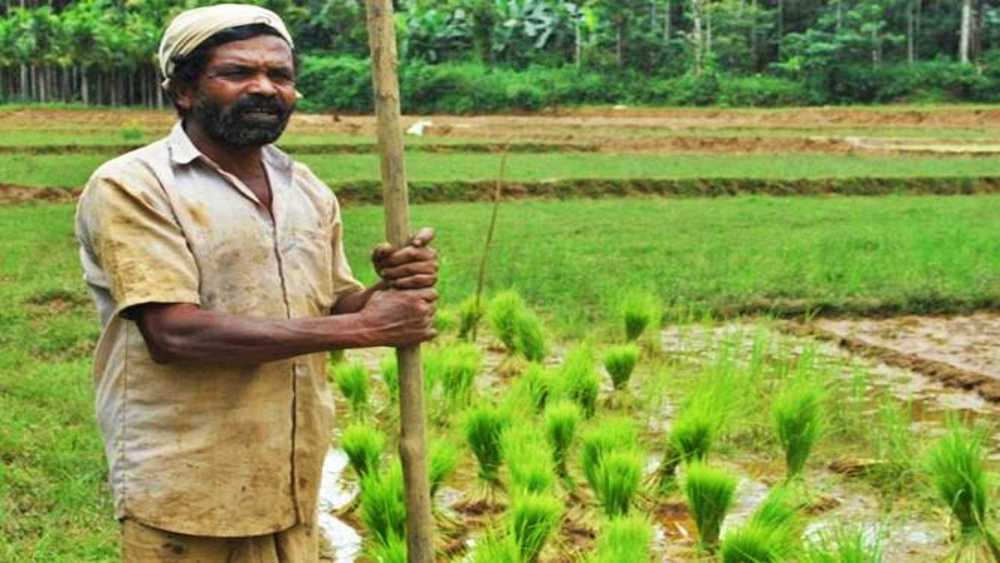
Day two started with a soothing guided nature walk around the tranquil landscapes of Kuruvadweep. Camp members were exposed to the island’s rich flora and fauna while soaking in the sounds of water streams, birds’ chirping, and wind. They were able to enjoy breathing in clean air, far removed from civilization, and appreciated nature. The walk was enlightening and peaceful. The calmness of the entire scene allowed them to see how everything in nature is interconnected and relative to one another. It was a gentle reminder to them of how vital it is for us to protect and take care of our surroundings so we don’t lose everything beautiful nature has to offer.
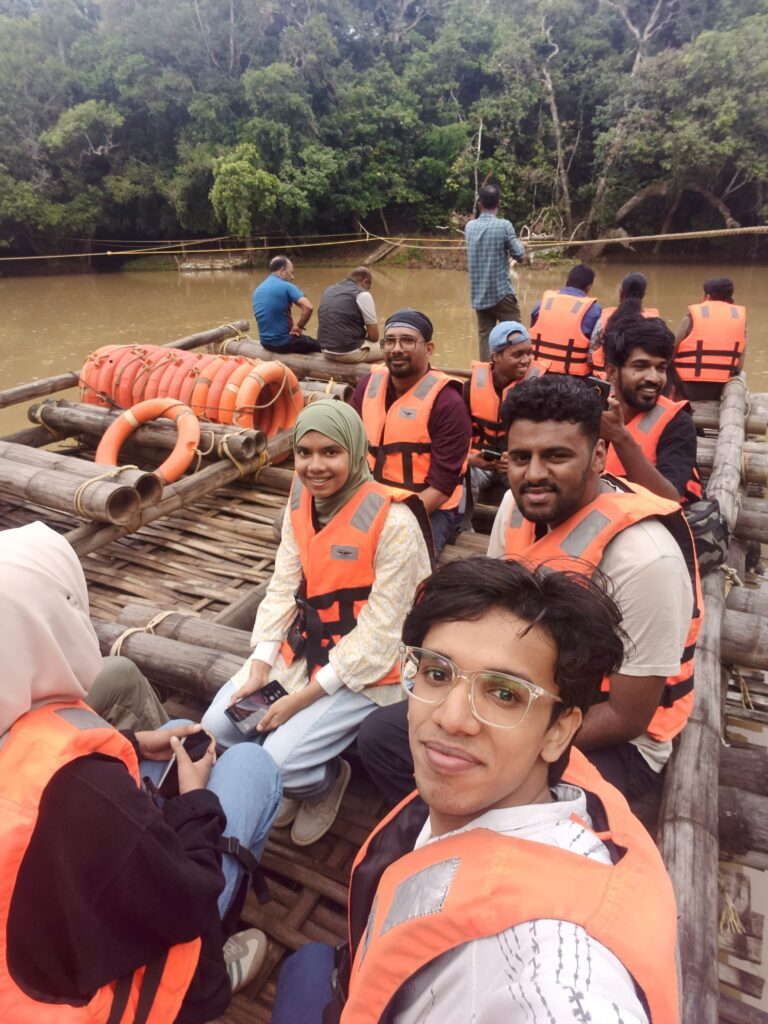
The final session, led by DFO Ajith K. Raman, focused on the challenges faced by elephants, tigers, leopards, and other wildlife amid growing human interference in their habitats. He examined how the media often sensationally portrays human-wildlife interactions. They treat them as marketing opportunities while ignoring the root causes of such encounters and depicting these animals as threats to humanity. By analyzing the Gadgil and Kasturirangan reports, he urged the camp participants to adopt a sensible and empathetic perspective that sees all wildlife as co-inhabitants of their ecosystems.
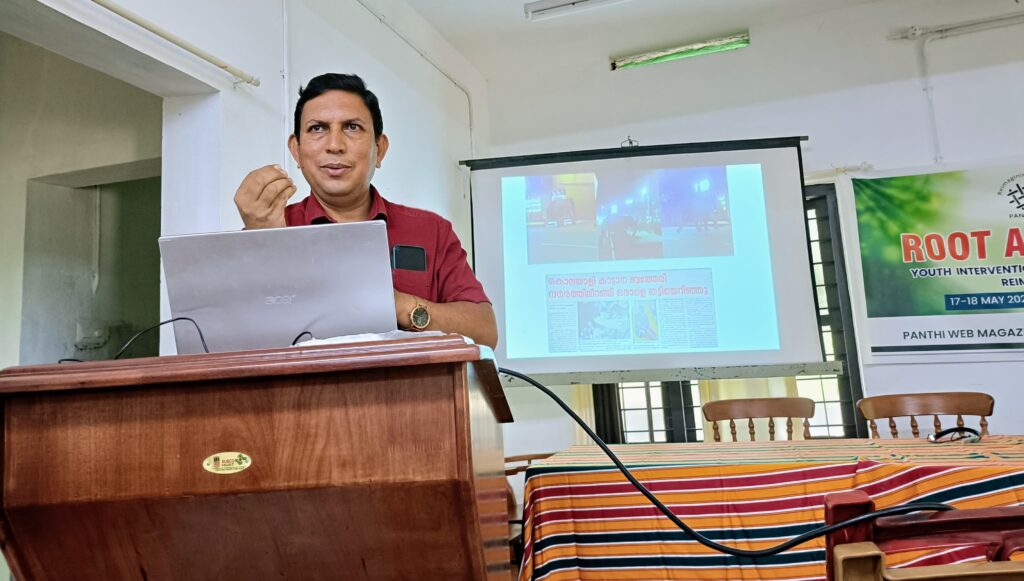
Camp members also engaged in discussions about the difficulties faced by media professionals and the consequences of a lack of independent journalism. The conversations also focused on how to encourage youth participation in publication content, what new themes could be introduced, and how ideas can be effectively communicated through social media.
The Roots and Routes camp came to an end with a deep yet simple realization: that we, along with indigenous people, animals, birds, and every living being, are all part of nature, not separate from it. We don’t stand above or outside it; we live within it, sharing the same space, the same rights, and the same responsibility. Every step through the forest, every story heard, and every sound felt reminded us of this truth. The camp became more than an experience, it became a gentle awakening to the idea that true harmony begins when we see all life as equal and interconnected.
